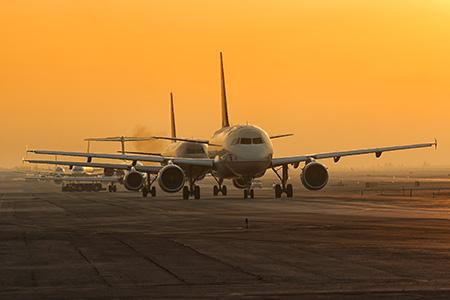Capacity Building through Efficient Use of Existing Airport Infrastructure

This report examines how airport capacity could be improved to benefit the users of aviation, without building new airport infrastructure. Roundtable participants took a view that any congested airport represents a market failure with rents accruing either to airlines and/or elsewhere along the value chain. The distributive impacts of slot allocation regimes and any trade-offs from potential changes to them thus need to be considered by policy makers before deciding on any capacity allocation measures. Participants agreed that a multi-faceted approach is needed to improve welfare of aviation users, which in particular needs to take advantage of technological change in the sector. The publication summarises the results of a
Roundtable held in Querétaro, Mexico
in March 2017.
Policy Insights
- Whilst governments should act cautiously and avoid intervention unless there are strong reasons for it, airports, airlines, air navigation service providers, and regulators need to pursue all possible technical innovations to improve the utilisation of airport capacity. Collaborative decision-making is critical to achieving optimal outcomes.
- Governments should consider policies improving air connectivity alongside all impacts of air transport, in particular in terms of noise and air pollution impacts on local communities.
- Governments should constantly re-evaluate caps on aircraft movements that are designed to contain noise impacts, as technological improvements make it possible to reduce noise nuisance while allowing for more aircraft operations.
- IATA WSG should continue to evolve to facilitate more efficient use of scarce airport capacity, ultimately benefitting passengers and other users of aviation. Authorities should ensure that the rules are applied in practice as intended.
- Any system of slot allocation at congested airports needs to take account of the potential benefits of competition. When slots are allocated to new entrants they should be in sufficient quantity to support viable business models.
- The potential to use primary slot auctioning to improve welfare outcomes at congested airports should not be ruled out. To make decisions on primary slot auctioning, the transfer of rents needs to be considered explicitly, and steps taken to avoid excessive disruption to incumbent airlines.
- Secondary slot trading should be allowed and facilitated for more efficient utilisation of capacity.
- Congested airports should eliminate price discrimination against large aircraft wherever such discrimination is present.